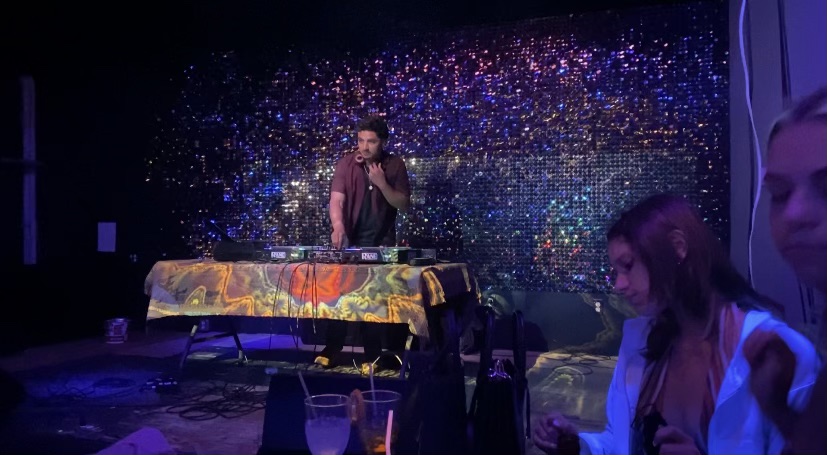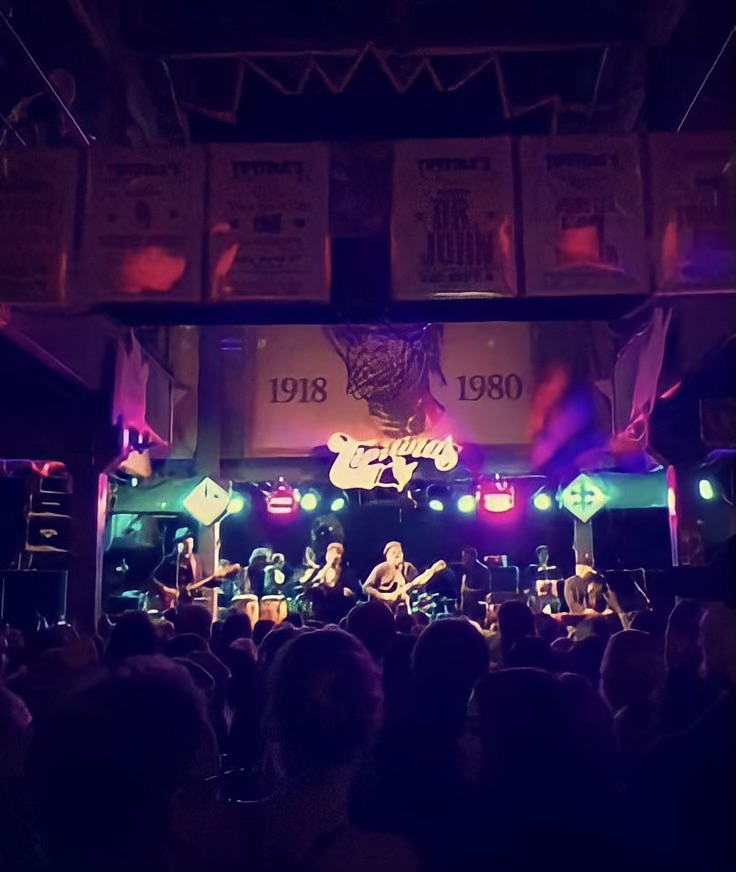This article, written by Tulane University graduate Anna Kuelling in 2021, offers a retrospective look at how New Orleans’ music venues and artists coped with the COVID-19 shutdowns. To align with its 2023 release, the original text’s tone has been modified from present to past tense, while keeping Kuelling’s original content intact.
New Orleans, resting on the toe of Louisiana, is a lively city renowned as the birthplace of jazz. It is home to some of the world’s most talented musicians and boasts exceptional music venues. The 2020 COVID outbreak threatened New Orleans’ longstanding tradition of live music, forcing artists and venues to completely shift their performance approaches since last spring. During this period, numerous music artists had to adapt their performance styles, hosting smaller, socially distanced concerts in settings like porches and parks. In New Orleans, front porch concerts were permitted starting in early 2021. Conversely, venues and clubs underwent significant changes, necessitating a complete operational overhaul.
Gasa Gasa, a renowned club on Freret street in Uptown New Orleans, is a hub for local talent, featuring art exhibits, film screenings, and live music shows. Since its opening in the summer of 2013, Gasa Gasa has been a vibrant venue for exciting concerts and events, both inside and in its charming outdoor courtyard. The New Orleans community felt a wave of concern when the indie music venue was put up for sale in July 2020, amidst the COVID-19 outbreak. Fortunately, Seattle musician Brandon Kempt quickly acquired the venue, stepping in just two days after his performance there. His timely action coincided with the start of the initial shutdowns.
In response to the challenges posed by the pandemic in early 2020, Brandon and his team at Gasa Gasa diligently reimagined the space to comply with COVID-19 safety guidelines. A notable transformation was the relocation of live performances from the indoor stage to their outdoor courtyard, accommodating a socially distanced audience. With the interior space unused, live performances by bands or DJs were projected onto a courtyard wall, creating a unique concert experience. Brandon noted that DJs, in particular, thrived during this period, as bands faced limitations in on-stage interaction due to social distancing measures. He revealed that, during the three months preceding our 2021 interview, Gasa Gasa hosted DJ events every Friday and Saturday, demonstrating creative adaptation to the evolving situation.

Image features DJ “Mikey Offline” performing at Gasa Gasa on Friday, April 16, 2021. (Photo by: Anna Kuelling)
The projection method that the venue used involved one or two cameras filming the performance on stage, connected to projectors outside via a long HDMI cord. These projectors streamed the show onto a large brick wall outside the venue. Additionally, the club had to modify its ticket-selling approach. Instead of general admission tickets, the team switched to selling tables, priced between $40-50 for a table of four for an hour-long performance. The venue also stopped charging a cover fee, a move Brendan mentioned was beneficial in ensuring musicians did not lose income. In a positive development at that time, some restrictions had been relaxed, allowing the venue to host 10 tables inside (50% capacity), up from the initial eight tables outside.
Another renowned New Orleans venue, Tipitina’s, also had to adapt drastically to the restrictions following the COVID outbreak. Its last show was on March 13th, 2020, when owner Brian Greenberg shared that New Orleans artist Big Sam was setting up for his performance before they had to cancel. Following the news, Tipitina’s kept the building closed to the public for a month. After this quarantine period, they focused on internal projects, like maintenance and replacing flooring. The venue had also increased its live streams, which were already in place before the pandemic and were sponsored by Crystal Hot Sauce. Additionally, Tipitina’s had started hosting outdoor concerts in the previous fall, featuring socially distanced chairs, live bands, and drinks to go. Initially successful in terms of turnout, they eventually ceased these concerts as bands were performing unpaid, relying only on audience tips. When I spoke to Brian, Tipitina’s had been closed for over a year. By the time of this interview in 2021, the venue was able to host 75% capacity indoors, as one of the larger clubs in the Uptown New Orleans area, having renovated the interior to accommodate socially distanced tables.

Photo captured inside Tipitina’s pre-COVID. (Photo by: Anna Kuelling)
Brandon had said that it was ‘pretty rough the whole time’ for musicians and club owners during the pandemic, but COVID also provided a unique perspective for these groups. The challenges posed by the pandemic had enabled people in the music industry to adapt to new circumstances and learn flexibility in their plans and performance methods. Echoing Brandon, Brian thought that, with small initial steps already in place, the outlook was improving for musicians, artists, and concert-goers. Both Brandon and Brian believed that the fall of 2021 would be a turning point for the music community, as restrictions began lifting and venues started reopening. Indeed, several music festivals had announced their post-COVID return for either the summer or fall of 2021, including Rolling Loud in Miami (July 23-26th) and New York’s Governor’s Ball (September 24-26).
As a time capsule reflecting the anticipation and excitement felt during the reopening phase, the final words of author Anna Kuelling, originally as she penned them in 2021, are retained unchanged: ‘If you or people you know have been missing live music and concerts for the past year, the wait is almost over! Whether it involves attending a concert this summer or fall, or visiting one of New Orleans’ renowned music venues such as Gasa Gasa or Tipitina’s, we will soon be able to rejoice in song.’
Anna Kuelling was a student in the Digital Civic Engagement class at Tulane University. Now that she has graduated, you can reach her at anna.kuelling1@gmail.edu.
Edited by Connor Hogan, a dual degree student in Marketing and Political Science at Tulane University. He is available for contact at chogan8@tulane.edu.
 NOLAbeings
Multimedia artist Claire Bangser created NOLAbeings as a portrait-based story project that marries...
NOLAbeings
Multimedia artist Claire Bangser created NOLAbeings as a portrait-based story project that marries...
 Data corner: Adobe Suite (create a PDF, social media graphic, presentation, edit a photo and video
Data corner is where you go to work with analytics and top tech skills. It takes on everything from PERL and SQL to Canva and Sprout Social.
Data corner: Adobe Suite (create a PDF, social media graphic, presentation, edit a photo and video
Data corner is where you go to work with analytics and top tech skills. It takes on everything from PERL and SQL to Canva and Sprout Social.

A well-organized and insightful post that provided clarity on an important topic. The explanations were straightforward and easy to understand.
bestpopularhairstyles.org